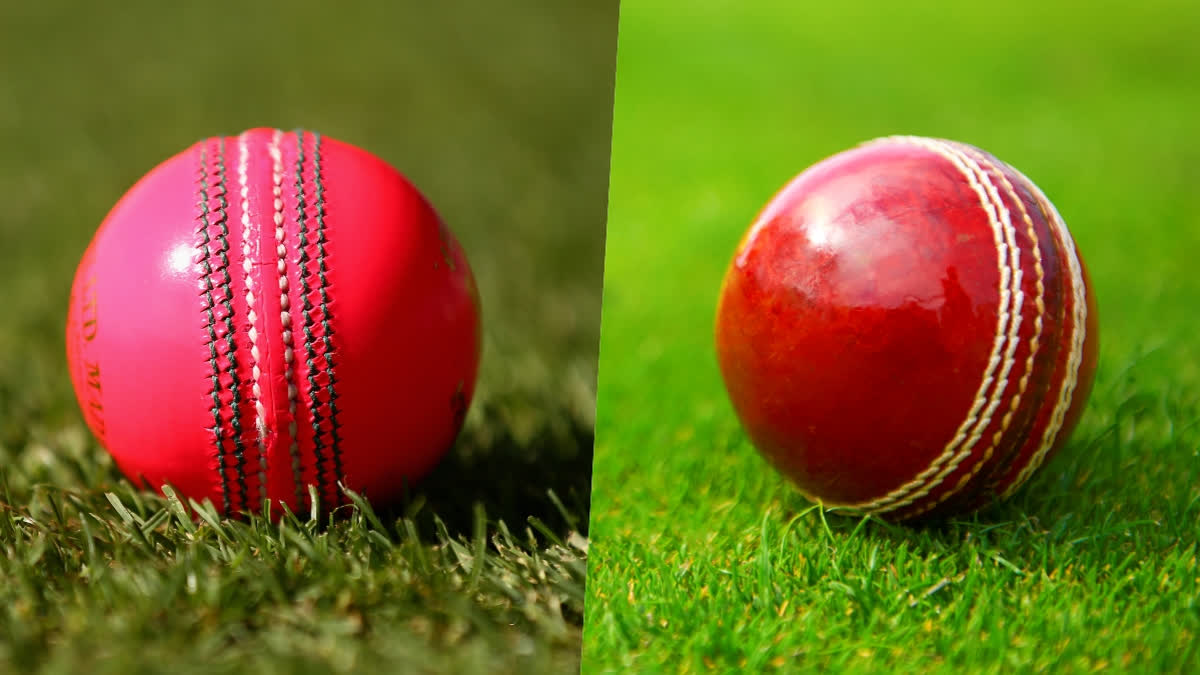Hyderabad: As India and Australia prepare for the second Test of the Border-Gavaskar Trophy 2024 at the Adelaide Oval, the shift to a day-night Test introduces a different challenge: the pink ball. Day-night Tests are yet to become a regular feature in modern cricket, but Australia have been doing a job to promote this form of Test cricket arranging it every now and then.
The use of the pink ball instead of the traditional red ball brings unique dynamics to the game. Here's a look at the key differences between the two and how they might impact the upcoming Test.
Australia enter game mode as preparations for the pink-ball Test pick up 👊#AUSvIND #WTC25 pic.twitter.com/0y06tsM7bd
— ICC (@ICC) December 3, 2024
Key Differences Between Pink Ball vs Red Ball
1. Visibility and Color
The most visible difference is the colour. The pink ball was introduced to improve visibility under lights, as the red ball becomes very difficult to spot during the twilight sessions under black sky. The pink hue reflects more light, ensuring better to judge for players.
2. Swing and Seam Movement
The pink ball tends to swing more than the red ball, particularly during twilight — a phase often referred to as the "graveyard session" for batters. In addition to bowlers generating swing under lights with pink ball, the extra lacquer on the ball makes it more difficult for batters to face the heat. This added movement can prove lethal on Adelaide's grassy surface, with pacers like Pat Cummins, Scott Boland and Mitchell Starc expected to exploit these conditions. On the other hand, Indian seamers like Jasprit Bumrah, Mohammed Siraj, Harshit Rana and Nitish Kumar Reddy will aim to use this extra help on offer to trouble Australia’s top order.
🏏 What makes a pink ball different from a red ball, and how can you master this bright-coloured ball?#AUSvIND legend, #CheteshwarPujara shares his game plan!
— Star Sports (@StarSportsIndia) December 3, 2024
3️⃣ days to go for #AUSvINDOnStar 2nd Test 👉 FRI, 6th DEC, 8 AM only on Star Sports 1 | #ToughestRivalry pic.twitter.com/67yEL5NH4M
3. Surface Durability and Wear
The pink ball is coated with an extra layer of lacquer to prevent wear and tear under artificial lights. As a result, it retains its shine and hardness longer than the red ball. If we put that in numbers, the pink ball remains hard till 45-50 overs while red-ball gets softer after 35-40 overs. This characteristic reduces the chance of bowlers getting reverse swing.
Last time India played a Pink ball test match against Australia in Australia 🥵🔥#INDvAUS | #AUSvsINDpic.twitter.com/IWCmI6Vr4i https://t.co/353J7RJxz3
— Rayham🇵🇰🏏 (@Rayham__56) December 2, 2024
4. Impact on Spinners
The pink ball's more lacquer and harder seam can make it less effective for spinners compared to the red ball. However, it also depends on which kind of pitches are being offered to play on. The pacers have had upper hand in Pink Ball Tests while the spinners have dominated in Indian conditions.
5. Batting Challenges
Twilight remains the most challenging session for batters, as the pink ball swings more and the changing light conditions disrupt visibility. The Indian batting line-up, led by Rohit Sharma, who missed the first Test as he was on personal leave, and Virat Kohli, who scored a century in Perth Test and didn't feature in 50-over game against Australia Prime Minister XI, will need to adapt quickly to combat Australia’s fiery pace attack. Similarly, Australia’s batters will face stern tests from India’s seamers during these crucial hours.
Team India must not have forgotten that they were bowled out to their lowest team total in Tests in their last Pink Ball Test at the same venue in 2020-21. They will be aiming to avenge their previous defeat and take 2-0 lead in the five-match series. Notably, Australia have played 12 out of overall 22 pink ball test played out of which they have won 11 and suffered their only loss against West Indies earlier this year. However, the Adelaide Oval has been a fortress for Australia in day-night Tests, having won all their previous pink-ball matches at the venue. Their familiarity with the conditions and pink-ball dynamics could tilt the scales in their favor.
Pink Ball Test Record And Stats
- Matches: 22
- Home Team Won: 18
- Visiting Team Won: 4
- Highest Team Total: 589/3 Australia vs Pakistan in 2019
- Lowest Team Total: India 36/9 vs Australia in 2020
- Most Runs: David Warner (Australia) - 647 runs
- Highest Individual Score: David Warner (Australia) - 335 not out vs Pakistan in 2019
- Most Hundreds: Marnus Labuschagne (Australia) - 4 Hundreds Total
- Hundreds: 27 (including 2 triple tons and 1 double hundred)
- Most Wickets: Mitchell Starc (Australia) - 39 wickets
- Best Bowling Innings: Devendra Bishoo (West Indies) - 8 for 49 vs Pakistan in 2016
Hence, it will be interesting to see how India and Australia adapt to these unique challenges will likely define the outcome of this pivotal Test in the Border-Gavaskar Trophy 2024.



